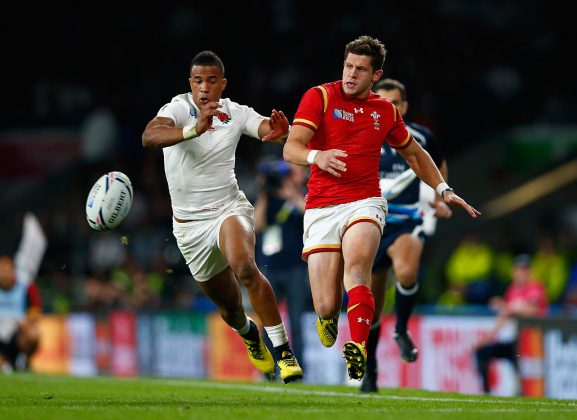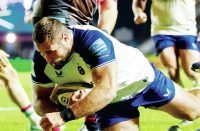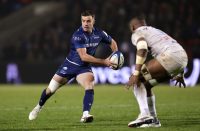When Wales open the Six Nations in Paris in less than a week, their team will bear little resemblance to the one they put out at the start of the last World Cup year. The same can be said of their opponents, England.
Of the Welsh line up on that Friday night in Cardiff four years ago, only three can be sure of taking up the same position at the Stade de France – Jonathan Davies at outside-centre, George North on one wing and Alun-Wyn Jones in the second row.
The rest are either out of favour (Jamie Roberts, Alex Cuthbert), out of luck (Leigh Halfpenny, Taulupe Faletau, Dan Lydiate, Jake Ball), out of time (Sam Warburton, Gethin Jenkins, Richard Hibbard) or, in Rhys Webb’s case, out of sight. The other two, Dan Biggar and Samson Lee, cannot be sure of their place.
England’s winning team that night in Cardiff suffered a similar disintegration, a condition hastened by the Welsh avengers putting the skids under their very own World Cup that autumn. They have had fewer retirements (Joe Marler) but more long-term injuries (Anthony Watson, Jonathan Joseph, Chris Robshaw, Dylan Hartley).
Their three starting survivors for Ireland in Dublin the day after France-Wales are unlikely to extend beyond Jonny May, Ben Youngs and Billy Vunipola, provided he stays in one piece, a dangerous assumption given his recent sequence of bad breaks.
If nothing else, the low survival rate illustrates the high turn-over of personnel over a relatively short period. The reality points to every Test squad being in an almost perpetually fractured state.
For that reason, more so than the constant vagaries of form, whatever team Warren Gatland puts out against France will probably bear little resemblance to the one he picks for the opening World Cup tie against Georgia in Japan seven months later.
Four years ago almost half the side beaten by England at Cardiff failed to reappear for the fateful World Cup tie at Twickenham the following September. Halfpenny, Jonathan Davies and Webb, victims of serious injury pre-tournament, cleared the way for Liam Williams, Scott Williams and Gareth Davies respectively.
Hallam Amos ousted Cuthbert which left Roberts as the sole surviving threequarter. Two-thirds of the front row had also changed with Scott Baldwin and Tomas Francis replacing Hibbard and Lee.
England made the same number of changes and no choice had a more profound effect on undermining their World Cup than the midfield pairing of Brad Barritt alongside the Rugby League convert, Sam Burgess. Wales could hardly believe their luck although in the end they owed their escape to the nous of substitute scrum-half Lloyd Williams operating as an emergency wing.

But for that, Stuart Lancaster would probably have been finalising plans for a second crack at The Big One as England head coach. Winning the Six Nations does not carry much clout at World Cups, at least not in the last three.
Ireland arrived at the last one as champions of Europe only to be given a quarter-final runaround by Argentina. In 2011, England fell at the same stage, turned over by France and in 2007 the French, champions going into their own tournament, lost to England in the semis.
Nobody has won the Six Nations and the World Cup in the same year since England in 2003. Ireland, and to a marginally lesser extent, Wales, will think it high time they did something about that.
PETER JACKSON / Photo: Getty Images























